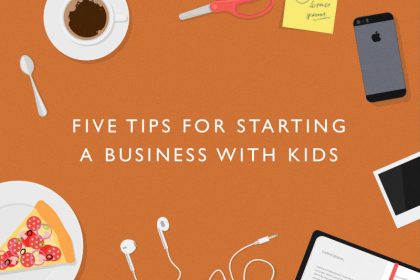How to test your food business idea without quitting your day job
Dream of running your own food business but don’t know where to start? Here’s how to test your idea without quitting your day job.
If you’re a talented cook or baker keen to share your skills with a wider audience, you might be considering ways you can start a food business from home. Here are some practical tips to help you test your idea, and make sure it really works, before taking the plunge and quitting your day job.
Taste test your product with a wide audience
Family and friends are always likely to encourage you and be positive about your products. But for a viable business, you’ll need to know that your product appeals to a wider audience. And that means testing.
Luckily food tastings are often popular! So organise sampling sessions with potential customers and gather their feedback on the spot. As well as taste, find out:
- If they like the product appearance and packaging (if applicable).
- How many might they buy and when.
- What other products they might they expect or like to buy if you were to expand your range.
Feedback like this will help you refine your product and give you food for thought when considering how your business could expand.
How to hold a sampling session
There are various options for holding a sampling session. The easiest is to approach colleagues or a local community group that you’re involved with, and ask them.
Or you can research local events and markets to find out if you could hold a one-off stall. My local council offered free pitches to local start up businesses in the market place during the week, which was a great way to canvass local opinion.
Make sure that you comply with any food safety regulations and insurance requirements if you do hold a public stall.
Think practically about making your products
It’s likely that, at the start at least, you’ll make all your products in your home kitchen. Once you decide to start your business, you’ll need to register your kitchen 28 days in advance with your local council’s Environmental Health team. Before then, give them a call to discuss whether your kitchen space will be suitable for your plans and whether you’ll have to make any adjustments.
It’s also important to consider from the outset what you’ll do as your business grows. While you may have enough space to produce one cake or a batch of your product, how will you manage when you need to increase production for an order?
Consider the time it takes to produce multiple batches. Do you need to have space for products to cool or to store them? Will you need extra equipment and ingredients? And if so, where will you store these? How often will you be able to cook or bake uninterrupted, for example by the preparation of family meals? Plan out a realistic production schedule and work out your capacity from this.
Decide how you’ll sell your products
Once you establish a need for your product and know your capacity, where and how will you sell your products? One option is direct sales to consumers. Customers could collect from your home, buy from your local market stall or perhaps you’ll deliver – which you’ll need to make time for.
Another option is to sell to local independent cafes, delicatessens or farm shops. Research possible businesses in your local area and go in to have a chat with them. Do they already sell local produce? Would your products be a good fit with their customers – think about what your product will add to their business.
Ask if they would consider a local supplier and what their terms might be – a cut of the profit or a minimum regular order for example.
Remember it’s a food ‘business’
When you’re building a business around a passion, it’s easy to get caught up in the exciting, creative parts of starting your business… like the food itself and packaging etc. But if you want to turn that passion into an enterprise that makes money and allows you to quit your job and focus on it full time, you need to approach your business properly from the start.
Here are some resources that can help you do this:
- Do you have a robust business idea? Here’s how to find and test yours
- Find out why you need a business roadmap, and how to get one
- Here’s how we help you build a profitable business month by month
- Six things you need to start a profitable business while working full time
Learn more about starting a food business
Love to read more about turning your passion for food into a business? You’ll find more advice in these articles:
- Want to make money out of your family’s secret recipe? Here’s how
- Interview with Ella’s Kitchen founder Paul Lindley
- Seven mistakes to avoid when pitching your food business
- How Claudi & Fin got their lollies into UK supermarkets
And finally, to find out more about Rhiannon’s own journey in launching her food business from home, watch our video interview with her.
Rhiannon Abbott supports small and start-up food businesses to use social media more effectively to market themselves, and trains new home bakery businesses. To book training or for more information, see her website Purple Loaf or email her.
Rhiannon also runs bread making classes and previously baked and sold artisan breads through The Epsom Bakehouse.
Photo by NordWood Themes










